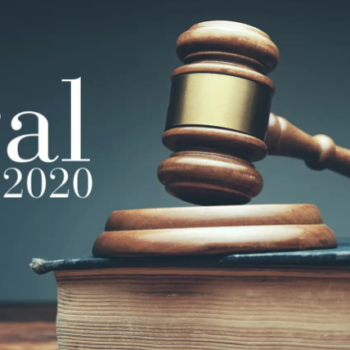
CCPA Compliance: Tighter Restrictions from the CCPA & Proposition 24
On November 3, 2020, California voters passed Proposition 24, which amends and expands the California Consumer Privacy Act (CCPA). The CCPA, which became effective earlier this year, requires companies marketing to, or doing business with, Californians to revise their privacy programs, policies, and even systems in significant ways. The passage of Proposition 24, called the California Privacy Rights Act of 2020 (CPRA), will require organizations to once again evaluate their privacy programs, and they are likely to need to make additional changes for CCPA Compliance.
The CCPA was a landmark piece of privacy legislation in the United States. Designed to empower California residents, the law gives consumers control over certain information captured or maintained by the businesses they interact with. However, there were concerns that the CCPA did not go far enough to protect consumers. Proposition 24 builds on the existing framework and creates a more comprehensive consumer privacy mandate that could be used as a template for future federal privacy legislation.
Major provisions of Proposition 24, scheduled to become operative in January 2023 for data collected beginning in January 2022, include the following:
- Created a new category of “sensitive personal information,” which includes the consumer’s racial or ethnic origin, religious beliefs, genetic information, sexual orientation, union membership, and more.
- Required changes to the notice provided to consumers at the time information is collected, including the retention period for information or the criteria used to determine a retention period in certain circumstances.
- Created a requirement that businesses must honor consumers’ requests not to share personal information. In addition, if a consumer asks a business to correct information in its records, the business must comply.
- Mandated that businesses must obtain permission before collecting information from people under the age of 16, and must obtain information from a parent or guardian before collecting information from anyone under age 13. Fines for violations of these provisions are tripled from existing penalties under the CCPA.
- Created a specific data security requirement, mandating that businesses implement reasonable policies and procedures to prevent the unauthorized access, use, modification, destruction, or disclosure of consumers’ information.
- Removed the time period for businesses to self-correct violations before being subject to penalties.
- Established the California Privacy Protection Agency, which is charged with interpreting and enforcing the CPRA’s privacy requirements.
Organizations that are subject to Proposition 24’s provisions should begin planning now, and should create tailored CCPA compliance plans designed to implement and manage compliance with the law’s expanded requirements.
Baer Reed helps organizations by providing a variety of business and legal support solutions, including assistance with CCPA compliance. Contact us to learn more!
- On November 30, 2020
- Back to post list



 Mr. Reyes graduated with honors from the Ateneo de Manila University, where he received the Procter and Gamble Student Excellence Award. He obtained his Juris Doctor degree from the Ateneo de Manila School of Law. During law school, Mr. Reyes was part of the Philippine delegation to the Willem C. Vis International Commercial Arbitration Moot held in Vienna, Austria. He was also a member of the Ateneo Society of International Law and the St. Thomas More Debate Society. He completed his internship at the Public Attorney’s Office. He wrote a thesis entitled: “To Kill A White Elephant: An Analysis of the Fiduciary Exception to the Corporate Attorney-Client Privilege”. Mr. Reyes is admitted to practice law in the Philippines and the State of New York.
Mr. Reyes graduated with honors from the Ateneo de Manila University, where he received the Procter and Gamble Student Excellence Award. He obtained his Juris Doctor degree from the Ateneo de Manila School of Law. During law school, Mr. Reyes was part of the Philippine delegation to the Willem C. Vis International Commercial Arbitration Moot held in Vienna, Austria. He was also a member of the Ateneo Society of International Law and the St. Thomas More Debate Society. He completed his internship at the Public Attorney’s Office. He wrote a thesis entitled: “To Kill A White Elephant: An Analysis of the Fiduciary Exception to the Corporate Attorney-Client Privilege”. Mr. Reyes is admitted to practice law in the Philippines and the State of New York.







